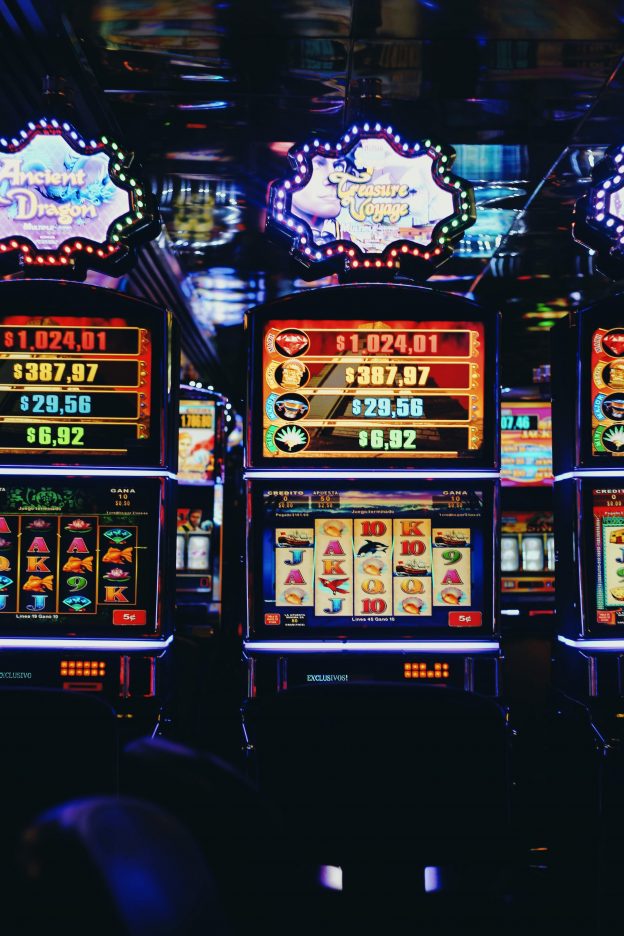In Hold’em, players are dealt two down cards (hole cards) as their personal hand, followed by a betting round. A new round of betting begins when three board cards are turned over at the same time (called the flop). Each of the next two board cards is turned over one at a time, with a round of betting in between. The board cards are community cards, and a player can use any five cards from the board, as well as personal cards, in any combination. A player can even form a hand with only board cards and no personal cards (“play the board”). It is necessary to use a dealer button. The game is usually played with two blinds, but it can also be played with one blind, multiple blinds, an ante, or a combination of blinds and an ante.
Rounds of Betting
Each player is dealt two face-down cards known as hole cards or pocket cards at the start of the game. Starting with the player to the left of the large blind, any player can call, raise, or fold the big blind in the first round of betting. The large blind has the power to raise a pot that has previously been unraised.
The Flop – After the dealer burns a card, three community cards are dealt face up. The flop is made up of the first three cards, whereas the board is made up of all community cards.
Second Round of Betting – Any player can check or bet starting with the player to the left of the dealer button. Any player can raise, call, or fold after a bet has been placed.
The Dealer burns another card and adds a fourth face-up card to the community cards on the turn. The turn card, often known as the fourth straight, is the fourth card.
The third betting round follows the same style as the second, although in limit games, the size of the bets is frequently doubled.
The River – The dealer burns a fifth and final card before adding it to the community cards. The river card, often known as the fifth straight, is the fifth card.
The format of the final betting round is the same as the second and third rounds.
The Showdown – The remaining players expose their hands, starting with the gambler or last raiser, using the greatest five card combination from their hole cards and the community cards. The pot is won by the player with the best five-card hand. (If there is a tie, the pot is divided equally between the winning hands.)
Other Poker Rules for Texas Hold’em
These guidelines only apply to irregularities. For more information on button and blind usage, see Button and Blind Usage. A misdeal will occur if you show the first or second hole card dealt. The dealer picks up the card, reshuffles the deck, and cuts the cards once more. The deal is completed if another holecard is revealed as a result of a dealer foul. The card that has been exposed cannot be saved. The dealer replaces the card with the top card of the deck after finishing the hand, and the exposed card is used as the burn card. If you see more than one hole card, it’s a misdeal, and you’ll have to start over. The flip must be re-dealt if it contains too many cards. (This is true even if you can tell which card is the extra.)
The board cards are mixed with the rest of the deck if the flop has to be redealed because the cards flopped prematurely before betting was completed, or if the flop had too many cards. The fire card is still sitting on the table. The dealer cuts the deck after shuffling and deals another flop without burning a card.
See Explanation, discussion #2 for further details on this regulation.
Even if following players choose to fold, if the dealer flips over the fourth card on the board before the betting round is completed, the card for that round is removed from the game. The wager is now concluded. The dealer discards the fourth card and replaces it with the fifth card. The dealer shuffles the deck again after this round of betting, including the card removed from the deck, but not the burned or discarded cards. Without burning a card, the dealer then cuts the deck and turns over the last card. If the fifth card is turned over before the end of the game, the deck is reshuffled and dealt again.
See Explanation, discussion #2 for further details on this regulation.
If the dealer offers the first player an extra card after everyone else has gotten their opening hand, the extra card is returned to the deck and used as the burn card. A misdeal occurs when the dealer inadvertently deals more than one extra card. If you’re playing the board, you must declare this before discarding your cards, otherwise you’ll lose your claim to the pot.

